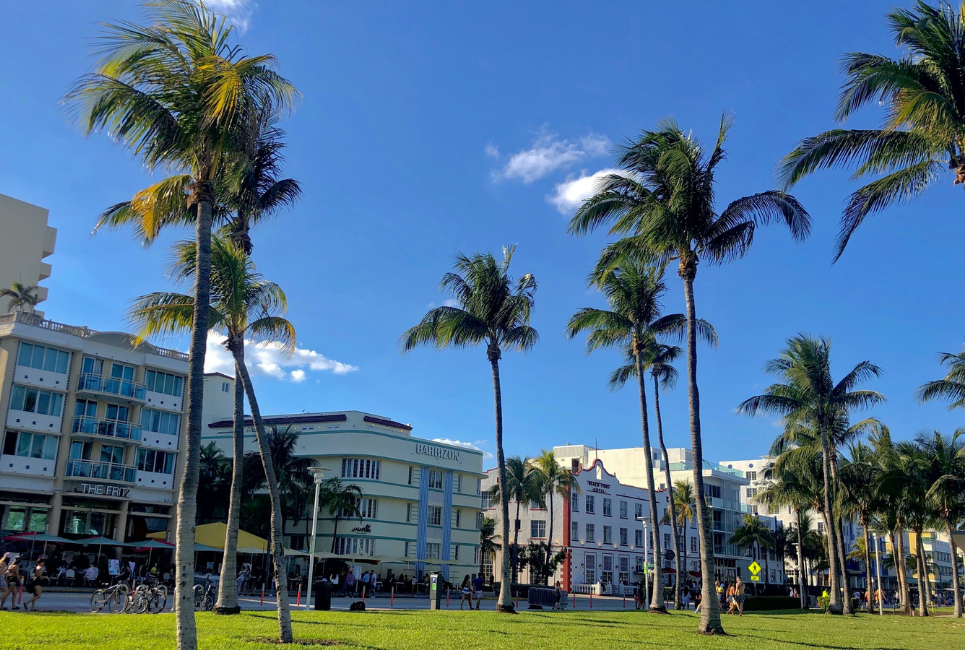- Popular Types of Bermuda Grass Explained - April 21, 2022
- When to Mow New Grass - April 18, 2022
- Best Troy Bilt Push Mower: How to Find The Right One - April 25, 2021
When you live in Florida and think of the grass you can grow, there is nothing less than doing thorough research on the best grass seeds for Florida because the whole of the state is not of the same weather or seasons. That is when you realize you need to know what grass to grow where and when.
We won’t be going through all the climate zones to tell the best grass seeds to grow in every climate zone. We have made it easier for you and looked at the two most possible weather conditions; warm and cold season.
You already look hopeful, right? We have done our best and prepared a list of Florida’s best grass seeds and left the responsibility for choosing what fits you according to the season, traffic, availability, type of soil, intention, and other conditions of growing grass.
Look, what should you consider while choosing the best grass? Follow the things we have outlined below.
How To Choose The Best Grass Seeds
Growing lawns from scratch are considered the best and cheapest means, especially for the smaller yards. But the ability to choose the best seeds lies between the best and the worst of all time lawn.
Turfgrass breeders give useful information as frequently as possible to help you make the right choice for your grass and avoid embarrassment. Similarly, local grass seed vendors deal with tested and proven seeds, and this is why we need to let you know what to consider when buying seeds.
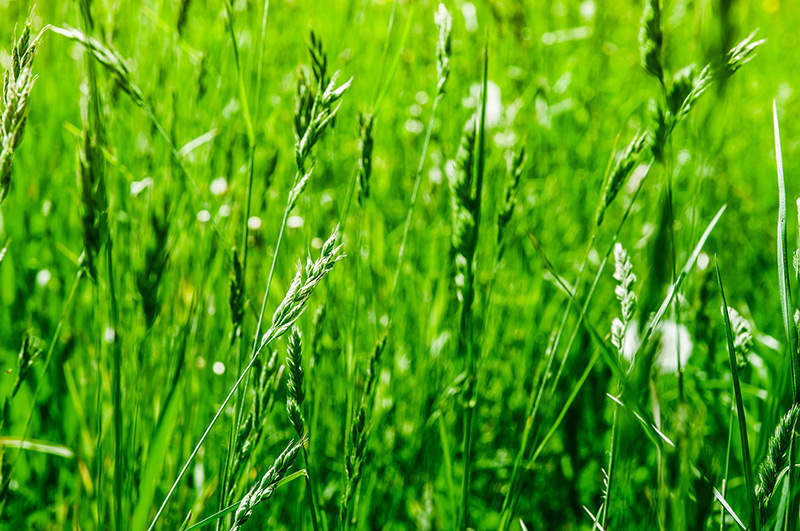
Ideal preferred height
Every grass comes with its ideal height. You must maintain your lawn at a perfect size, and the response will be a lush and healthy lawn. If you love grass with short stature, go for the grass that grows best at short and vice versa.
When mowing, you should never trim more than 1/3 of the total length of the grass blade at a single cut. You need to decide your turf’s ideal height and let grow the third longer before you mow.
Growing factors
Before you decide what seeds to buy, we surely recommend you first consider the factors under which the seeds you choose will grow. For instance, those seeds that never do well under the shade should never grow them under the latter.
Ideally, this wouldn’t be the best option for you because growing factors matter as they all revolve around your lifestyle and the lawn’s anticipated use.
Seasons
Various grass seeds thrive well in different seasons. Please consider the season in which you intend to grow a lawn and then look for the grass seeds that suit that particular season’s conditions.
Seed mix options
Some grass seeds are hybrid, while others are one type of seeds. Hybrid seeds are excellent options if you intend to address various lawn needs. For instance, if you want to deal away with patches on your lawn caused by drought, seedling designed purposely for redressing the patch would be the best option and not any other.
A mixture of the blended seeds usually has different grass species types, which combines their strength and generates a uniform look.
Grass that can grow in Florida exists in classes. The grass that can grow in the cold season and one that can grow in the warm season. It would be essential to know which grass is supposed to be grown at what season to avoid frustration and disappointment later after seeding.
Grass That Grows In The Warm Climate
Scotts Turf Grass Bermuda Grass
Scotts turf Bermuda grass does well in lawns experiencing long periods of scorching drought and heat. It grows aggressively and spreads to grow into a thick and durable property.
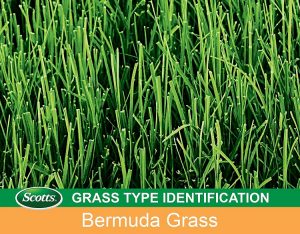
You can wrap each seed in an impressive four in one water-smart plus coating that can absorb two times more water than the uncoated seed. It also feeds with essential nutrients and protects seedlings from disease attack. With this grass seed, you are sure of quicker, thicker, and greener grass.
If you live in a marshy area with salty water, this should be your option grass due to its ability to resist salinity. Scotts turf Bermuda grass grows faster if you can water it frequently and spreads faster, making it an attractive choice to patch your lawn. All you need to do is to lay it down, water it often, and within a single season, it will have filled up.
Additionally, if you live in a backyard with high traffic, you can prefer this grass following its ability to grow faster. However, this grass flourishes in direct sunlight. Otherwise, if you keep it under the shade for more than one hour per day, you are risking it to grow as thin as you wouldn’t like.
Finally, Scotts turf Bermuda grass is a grass that grows best at a slightly lower height than the usual mowing height, and allowing it to grow too tall makes it thatch, but you should not panic if you can mow it every week.
Pros
- Effective
- Good directions
- Easy to use
- High quality
- Value for money
- Survives even drought and heat conditions
Cons
- However you water it, it does not sink deep.
- May fail to be as effective as you anticipate
2. Scotts Centipede Grass Seed
Scotts Centipede Grass Seed is a medium, low, and slow-growing but aggressive grass that makes a dense and weed-free turf if nurtured well. Unlike Bermuda grass, Scotts Centipede Grass can tolerate shades. It is also easy to control around the borders of the pavement and flower beds.
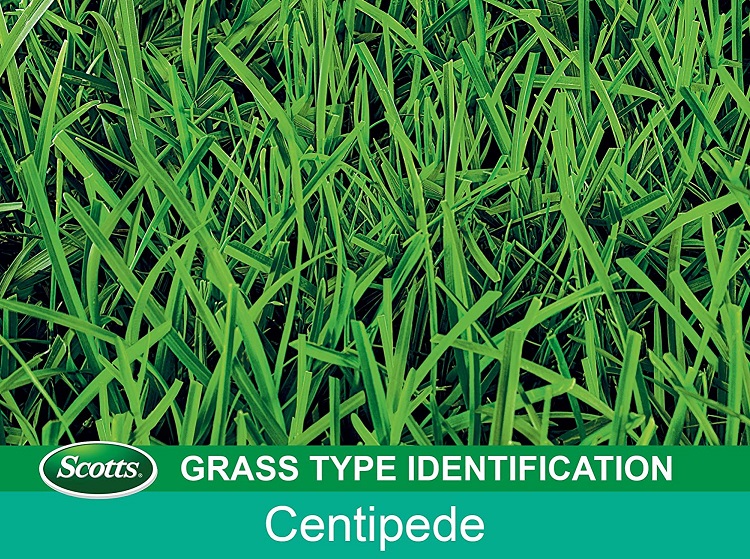
If you are those people who are always busy, we would recommend centipede grass for you simply because it calls for little attention and grows into a beautiful and admirable turf. It doesn’t need much fertilizer like other grasses and is also tolerant of most insects and diseases that adversely affect other grasses.
You can establish this grass without necessarily buying the seeds by replanting it spring and respond to an attractive turf if managed well. It also grows slowly and takes longer, giving you more time before you think of replacing it.
However, it is worth noting that just like any other plant, it is also subjected to manageable problems like excess fertilizing, accumulation prevention, irrigating during drought season, and maintaining a mowing size of 1-1/2 inches. It grows well in less fertile soils with a 5.0 to 6.0 PH but does grow best in soil with a PH of 6.0 to 6.5.
Pros
- Low maintenance and less nutrient requirement
- Tolerant to moderate shades
- Suitable for southeast lawns
- Tolerance to warm and heat seasons
Cons
- Sensitive to alkaline soil
- Relatively shallow root systems
3. Compadre Zoysia Grass seeds
Compadre Zoysia Grass seeds grow at 1-2 pounds per 1,000 square feet or 40- 80 lbs acre for the broadcast seeding. It is a grass easily recognized for its darker green color and improved density, long-lasting green color in the fall, and earlier green in the spring.
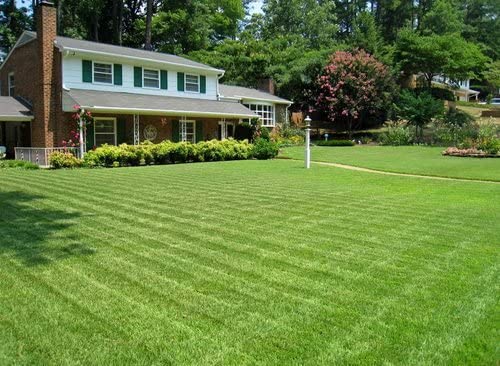
When the soil temperature reaches 79 degrees, we recommend a sprinkling of water until a minimum of ten weeks before the frost. You can grow the seeds in any soil that is specified for zoysia grass. It is the best alternative for the common zoysia or any other zoysia branded sources and a perfect substitution for the vegetative varieties.
This grass can be used in different places, including golf course tees, fair and rough ways, sports pitches, school fields, parks, and home lawns, and make such a beautiful turf. For this grass, it will have different leaf width and texture similar to that of a Meyer vegetative zoysia depending on how you seed it.
You are recommended to mow the grass weekly between ½ inch and 21/2 inches depending on the turf’s use. Regular maintenance and successful mowing of the grass will lead to a fine texture grass under the height of 3/8. More frequent mowing will also make the turf denser, which always looks beautiful and appealing.
Pros
- Durable
- Elegant and beautiful look
- Moderate maintenance
- Resist growth of weed
Cons
- Hard to establish mow
- May fail to work if you want the year-round green color
Grass that grows in cold seasons
Perennial Ryegrass Grass Seed
Perennial ryegrass grass can be grown and developed into turf characteristics essential for all of us. In addition to that, its seeds are of high quality with a “poa free” tag based on extensive seed testing, making sure not to bring problems in your backyard.
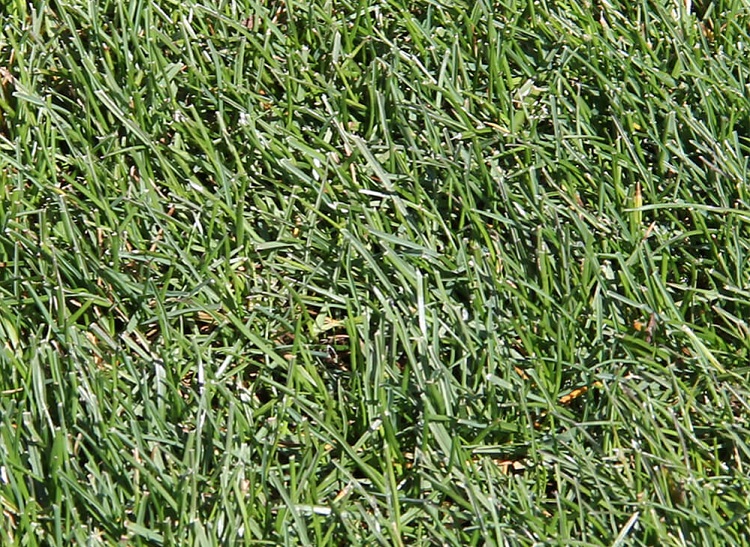
During the cold season in Florida, this grass has demonstrated disease resistance, active growth in cold weather, wear tolerance, and recovery character.
Even under heavy traffic like in a golf field and fairway to residential places, the grass can recover and show high-level performance. The high level of performance of Perennial ryegrass grass makes it the best for Perennial ryegrass uses.
Besides, the grass is also ideal for permanent turf due to its drought and stress tolerance. If you are looking for grass to grow in salinity soil, it makes the best grass with excellent and outstanding germination. The cultivars in this grass have shown high resistance to gray leaf spot and other diseases that usually attack grass.
High levels of viable endophytes help it resist various surface feeding insects and tolerate stress with bitter summer survival while facilitating recovery.
Pros
- Excellent seed quality
- Gray leaf spot resistance
- Tolerant to wear during heavy traffic
- Appealing green color and fine leaf texture
- Suitable for permanent turf
Cons
- Grown in clamps if not regularly overseeded
- Old plants of the grass may die as they are non-tolerant to winter.
- A dull mower may shred the grass leaving it a fuzzy lawn.
Pennington Tall Fescue Grass
Pennington tall fescue grass is a grass seeds package covering up to 6,250 square feet and produces economical, low, and cheap to maintain grass. Its seeds thieves well in full sun and moderately shaded areas, and its grass grows into a coarse texture and in light green color. It establishes quickly and tolerates heavy traffic and drought.
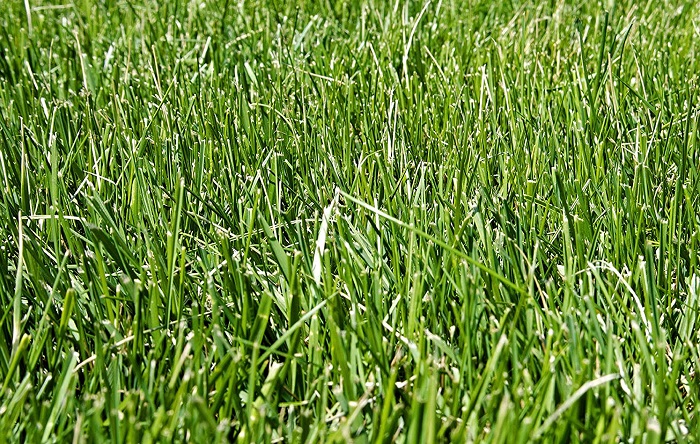
Pennington applies the technology that protects the seeds from deadly fungus to the maximum level best while still in their store to give desirable growth. The seed only takes two weeks to germinate from the day you sow them.
Under cold conditions, it is not necessary to water and calls for low maintenance. It requires maintenance at least once a week to keep the green color in a full drought season.
However, one area that you should never grow tall fescue grass is where there is high salinity because it prefers soil rich in no salinity, and it won’t grow in salty soil.
Pros
- Easy to establish
- Produces a drought resistance lawn
- Durable and long-lasting
- Requires low maintenance
- Protection of the seeds while still in the seller’s store.
- Holds up well under heavy foot traffic
Cons
- Limited capacity for self-repair
Scotts Turf Builder Grass Seed Kentucky Bluegrass
Scotts turf builder Kentucky bluegrass seed is excellent and recommendable in Florida due to its durability, density coverage, and luxuriant. The feel of the grass is smooth, soft, and lush, not like other grasses.
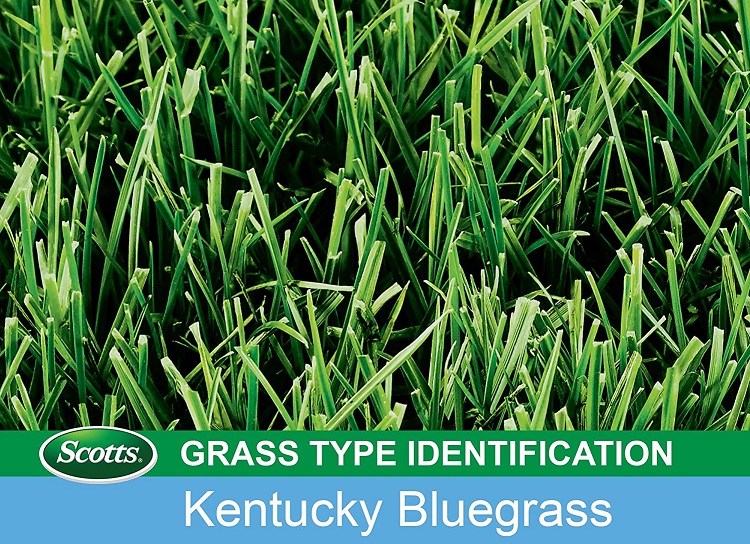
When at the pick, you should cut weekly, but with some parts in Florida, it may take different intervals but still keep your lawn evergreen around the clock.
It will flourish and provide a bit of more life if you maintain temperatures at 60 degrees Celsius. However, if you are short of water during the growing process, worry not as with Kentucky bluegrass; it will bounce back even more robustly after the drought.
One thing that should never miss in your Kentucky bluegrass is enough sunlight. It requires no shade and so never to grow them in an area that would be in any shade. Otherwise, it won’t densely fill the space.
Pros
- Grows into a dense cover
- Ability to spread widely
- Seeds up to 4,725. Ft.
- Grows and quickly covers as it grows by rhizomes
Cons
- Older varieties are more subjected to leaf spot disease
- Goes dormant and is exposed to hot, dry weather for a long time
FAQs
Answer: Zoysia. Zoysia is the best choice for people in Florida because it’s tolerant to several soil types and can also grow under some shade, and is resistant to most weeds. However, you should know that zoysia is not susceptible to drought and requires frequent and enough watering and fertilizer to grow and sustain itself.
Answer: Yes, if at all, you decide to continue with the existing grass. However, if you don’t like the existing grass, blend in some other types of grass seeds.
Answer: Fertilize before you sow. Because new grass seeds are vulnerable and giving them the right soil conditions helps them grow. So for that reason, it would be better if you fertilize an area where you intend to sow before you do anything.
Answer: Yes, it will grow but with poor germination. You should thoroughly rake the area you intend to sow your seeds while removing all debris to create the soil’s grooves. These grooves will help soil seed contact that is essential for health germination.
Answer: Use a mattock and a shovel to do the magic if the grass is small. But if you can, rent a sod cutter to shave off the top grass evenly and a Rototiller to make an optimum soil.
Answer: It should be kept traffic-free for a few weeks, even after the grass sprouts. The newly sprouted grass does not have enough energy to recover from the traffic. After realizing that blades have become thick, you can now walk on it but carefully.
Conclusion
As they always say, there is still what pleases someone even when provided with the best choice. And here among the best grass seeds to grow in Florida, my best choice is Bermuda grass. It is cheap, with the price going as cheap as $18 for 5 lb.
It does well in lawns experiencing long periods of scorching drought and heat and also grows aggressively and spreads to grow into a thick and durable lawn. Additionally, when wrapped with water-smart plus coating, it absorbs more water than the uncoated seed and feeds with essential nutrients, and protects seedlings from disease attack while growing quicker, thicker, and greener.
Bermuda grass has proven to flourish in salinity without any challenge. It grows faster if you can water it frequently and spreads faster, making it an attractive choice to patch your lawn.
Read more about finding the best grass seed if you live in:

